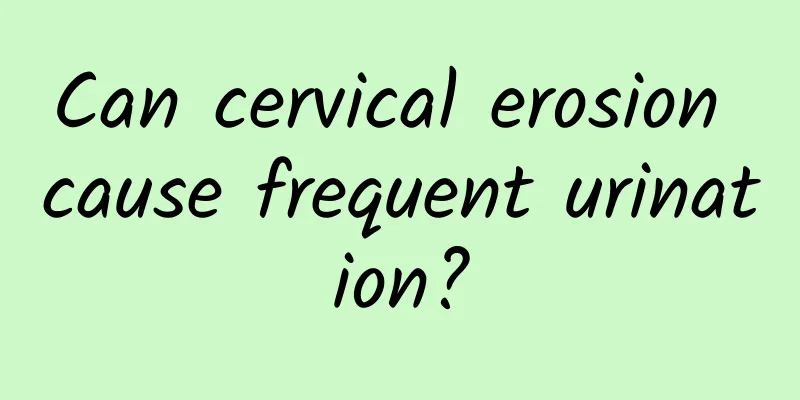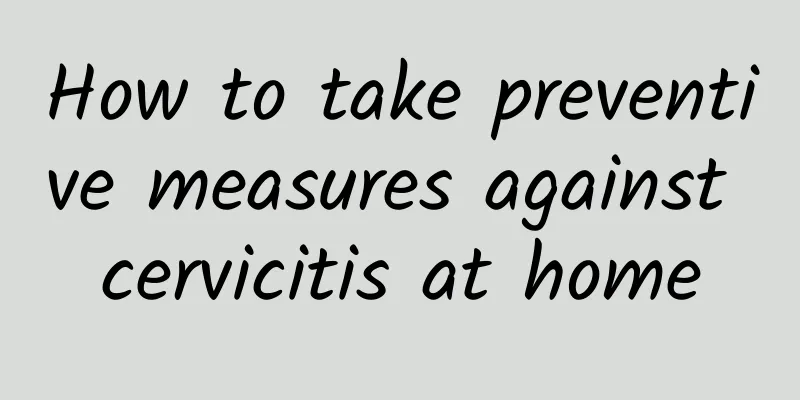What medicine can reduce swelling and relieve pain in Bartholinitis?

|
Bartholinitis is a common disease that brings great harm to women's health. Therefore, we need to pay attention to changes in our body, observe the occurrence of this disease, pay attention to reasonable conditioning, and pay attention to the pathogenic factors, and treat it as soon as possible. Bartholinitis is prone to swelling and pain during the acute inflammatory period. Generally, antibiotics can be used systemically to reduce swelling and relieve pain. After the swelling is reduced, surgical treatment can be considered. Below, the editor will introduce it to you in detail. 1. Drug treatment: Systemic antibiotics. Before obtaining culture results, broad-spectrum antibiotics can be selected. If suppuration has not yet occurred, medication can be used to promote the gradual improvement and absorption of symptoms. When there are systemic symptoms, fever, and elevated white blood cells, intravenous antibiotics such as cypermethrin or penicillin 800,000 U intramuscular injection are often used, twice a day. Cephalosporins can also be used: the first-generation cephalosporins have a strong antibacterial effect on Gram-positive cocci, the second-generation cephalosporins have a broad antibacterial spectrum and enhanced effects on Gram-negative bacteria, the third-generation cephalosporins have an antibacterial spectrum superior to the second generation, and some drugs are effective against anaerobic bacteria. Metronidazole 0.2-0.4g/time, 3 times/day; quinolones such as norfloxacin, ciprofloxacin, levofloxacin (Lailixin), 0.2g/time, 2 times/day. Or select according to drug sensitivity. In addition, heat-clearing and detoxifying Chinese medicines such as dandelion, Viola yedoensis, honeysuckle, and forsythia can be used for local hot compresses or sitz baths. Or use 1:5000 potassium permanganate water for a sitz bath or local hot compress and then apply antibacterial ointment. 2. Surgical treatment: Abscesses should be drained and ostomy performed immediately. Simple incision and drainage can only temporarily relieve symptoms. After the incision is closed, cysts may still form or infections may recur. For abscess incision and drainage, the incision should be large enough to prevent poor drainage of pus, resulting in fistula formation or repeated abscess attacks. 3. Other special therapies: Apply local heat, infrared or microwave therapy. The above is an introduction to "What medicine can reduce swelling and relieve pain for Bartholinitis". Remember, in the acute stage of Bartholinitis, you should absolutely stay in bed, pay attention to local cleaning, local cold compress, and apply antibiotics. If an abscess has formed, it should be incised and drained immediately. |
<<: What are the principles of medication in the treatment of Bartholinitis?
>>: What kind of compress can be used for Bartholinitis?
Recommend
What causes pelvic peritonitis?
What factors are likely to induce pelvic peritoni...
What should women pay attention to when using Kang suppositories for cervicitis? 7 principles of using Kang suppositories for cervicitis
Gongjingyankang suppository is a commonly used tr...
What medicine is good for uterine fibroids? How to use medicine for uterine fibroids
Uterine fibroids are a common disease among women...
Many people ask about the methods of abortion and what symptoms may occur.
There are two methods of abortion, one is medical...
What are the four main causes of ectopic pregnancy?
What are the four main causes of ectopic pregnanc...
The most common early symptoms of ectopic pregnancy in daily life
Ectopic pregnancy is one of the most common gynec...
What are the six symptoms of irregular menstruation?
Menstruation is a special physiological period fo...
What causes endometrial thickening after abortion?
Endometrial thickening after abortion may be caus...
How to treat uterine fibroids about 1 cm
Uterine fibroids of about 1 cm usually do not req...
What are the symptoms of cervical erosion in women? What are the best ways to treat cervical erosion?
Symptoms of cervical erosion After suffering from...
3D perspective fat target accurate fat removal without pain or wounds
Body Slimming Arena 2012 New Medical Technology, ...
Does ovarian cyst cause ovulation? What are the symptoms?
Will ovarian cysts cause ovulation? What are the ...
Analysis of the reasons why unmarried women can also suffer from pelvic inflammatory disease
There are many unmarried women suffering from pel...
How to avoid miscarriage?
How to avoid miscarriage? Miscarriage will cause ...
Tiffany Hsu trains her abdominal muscles by doing 3 yoga "boat pose" variations! The most effective way to train abdominal muscles and vest lines
Tiffany Hsu demonstrates the 3 most effective &qu...









